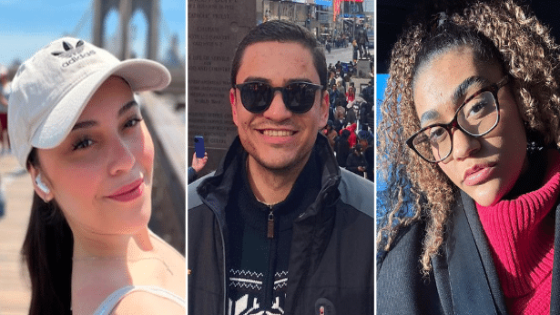On February 25, 2025, the experiences of Brazilian immigrants in the U.S. highlight a troubling reality. Many face discrimination and xenophobia, raising questions about their safety and acceptance in American society.
- Racial treatment differences in schools observed
- Perceived superiority among native Americans
- Immigrant safety concerns and xenophobia
- Importance of local connections for protection
- Fear of immigration enforcement encounters
- Experiences of au pair life in the US
Understanding the Impact of Xenophobia on Brazilian Immigrants in the U.S.
What does it feel like to be an immigrant in a new country? For many Brazilians, the answer is fraught with challenges. Ana Beatriz, a mother of a white American child, notes a stark difference in how her son is treated compared to Latino children. This disparity raises concerns about acceptance and belonging.
The Struggles of Brazilian Au Pairs in the U.S.
Erik Júnior Pereira, a 26-year-old au pair from Brazil, echoes Ana Beatriz’s sentiments. Living in Vermont, he often feels unwelcome, despite his efforts to integrate. Erik prefers to spend time with local friends to feel safer and more accepted. His experiences reflect a broader trend among immigrants who navigate a complex social landscape.
Key Challenges Faced by Brazilian Immigrants
Brazilian immigrants encounter several challenges that impact their daily lives:
- Discrimination based on appearance and ethnicity.
- Fear of immigration enforcement and potential deportation.
- Struggles to find community support and acceptance.
- Emotional toll of feeling unwelcome in their new home.
Building Community Amidst Adversity
Despite the challenges, many Brazilian immigrants strive to build supportive communities. They often rely on friendships with locals and fellow immigrants to create a sense of belonging. This support network is crucial for navigating the complexities of life in the U.S.
Looking Ahead: The Future for Brazilian Immigrants
As discussions around immigration policies continue, the experiences of Brazilian immigrants will remain significant. Understanding their struggles can foster empathy and drive change. How can communities work together to ensure a more inclusive environment for all?
In conclusion, the stories of Brazilian immigrants like Ana Beatriz and Erik highlight the urgent need for awareness and action against xenophobia. Their experiences remind US that every individual deserves to feel safe and accepted, regardless of their background.
































